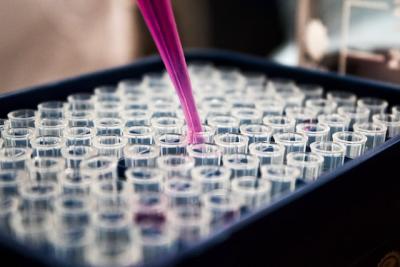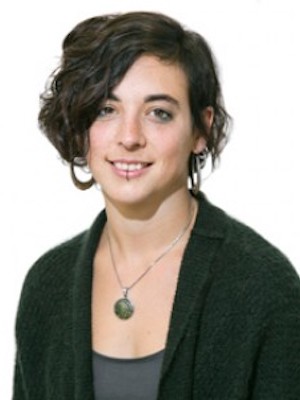From the lab bench to an SSI Fellowship
Posted on 13 September 2022
From the lab bench to an SSI Fellowship
 Photo by Louis Reed on Unsplash
Photo by Louis Reed on UnsplashBy 2022 SSI Fellow Gemma Turon.
When I completed my PhD in Biomedical Sciences a few years ago, I didn't even know that such a thing like a Research Software Engineer (RSE) existed. So, how did I end up being a Software Sustainability Fellow only three years after?
My path to research software engineering is simple: as a lab scientist, I could hardly do more than analyse and plot qPCR and flow cytometry results, and even so only with the help of expensive software licences. I had to rely on external support for anything more complex, which slowed down projects and prevented me from fully exploiting my capabilities as a researcher. Luckily, I was at IRB Barcelona, a well-funded institution in Spain, and had access to the support I needed. But this is not the case for every scientist, and certainly not the case for those in under-resourced regions.
I believe that bridging the gap between dry-lab and wet-lab should not rely on wet-lab scientists starting to code (as suggested by some), or dry-lab scientists sitting on the bench, but actually bringing both disciplines closer together, integrating software research into the laboratory pipelines and ensuring scientists with diverse skills work together. I fully believe in the potential of such an approach, and my enthusiasm for it led me in 2020 to co-found a small non-profit, the Ersilia Open Source Initiative, with the mission to equip laboratories and universities in low-income countries with AI tools and data science expertise to strengthen the fight against infectious diseases. At the core of our work is the development of open-source, easy to use software for drug discovery, diagnostics and epidemiology with a focus on infectious and neglected diseases. And this is how we came across the Software Sustainability Institute and the software Research Software Engineering community.
First contact with the SSI
Upon founding Ersilia, we knew networking would be invaluable for a small organisation like ours, not integrated within any of the large, well-recognised research institutions in the UK. The Software Sustainability Institute was an obvious point of contact for us, with a mission that echoed our own.
As soon as our main asset, a hub of pretrained AI models to support different stages of the drug discovery cascade, was in alpha stage (let’s say, the basic infrastructure was there but bug-fixes and improvements were much needed), we applied for a Software Health Check at the SSI. The help of the SSI's Steve Crouch and James Graham in those early stages was really immeasurable, you can read a bit more about the experience here. If you are, in any capacity, developing research software, I strongly recommend going through the Health Check!
Applying to be an SSI Fellow
After our experience with the Health Check, I was even more convinced I wanted to continue being involved with the SSI and its amazing work, but I was really doubting my “fitness” to be a Fellow, since my background is not really in computer sciences (I am a self-taught programmer, and, thanks to the journey with Ersilia, a decent data scientist, but definitely not an expert yet). To make matters worse, Ersilia’s co-founder Miquel, a trained computational biologist and expert in AI, had unsuccessfully applied for the programme the year before, which contributed to my doubts as to my application. Nevertheless, I decided to give it a try, after all, SSI does welcome people from different backgrounds and expertise, and I was really keen on being part of the community! To be fair, the first attempt from Miquel was at a very early stage of the initiative, without a clear plan or goals yet (as we were just starting), so I’d definitely recommend sitting and writing down your priorities for the Fellowship clearly before applying.
The application process is actually one of the best I have been through. The online selection day is a fun event, where you get to know a very diverse group of people involved in one way or another with RSEs. Just for this it is worth applying. I remember, for example, meeting current Fellow Kim Martin, from the Stellenbosch University in South Africa. I was casually joining in from South Africa as well, where I was working with Ersilia. I guess we were both suffering from the possibility of load shedding in the middle of the selection day (scheduled power cuts due to supply issues)! Luckily, I was able to complete the day without problems, and after the initial awkwardness of sitting in groups knowing you are actually being evaluated, it is easy to get into the discussions and learn a bit more about other people’s projects!
The Fellowship so far
Being an SSI Fellow has been great in many respects. My first real activity as an SSI Fellow was the participation in the Collaborations Workshop 22 (CW22), where I gave my first hands-on workshop about the Ersilia Model Hub. Being in front of real experts and putting our little piece of software out there for the first time was a real test. Even better was the speed blogpost writing experience for the discussion session about Ethical Considerations for your Open Source Governance. It was my first experience in community writing, and with a fantastic group of experts (Yo Yehudi, Arielle Bennett, Declan Bays, Sarah Gibson, Stephan Druskat, Yadira Sanchez and Sophia Batchelor). In CW22 I really discovered the SSI community, and I think this was the first benefit from the Fellowship, the possibility of connecting to so many like-minded individuals. Aside from the organised events, there is a monthly community call Fellows are welcome to join. This year I have had to miss most of them due to an overlapping course, but I am really looking for them to re-start after the summer break, and continuing meeting about and discussing software sustainability!
The second important aspect is how the Fellowship is helping me push forward my own agenda in RSE. I think this is also well-expressed by current Fellow James Byrne in his blogpost. The documentation of the Ersilia Model Hub has greatly improved, our tools are now ready to accept contributors and are also more user friendly, for example with Google Collab implementations. Moreover, being a Fellow has encouraged me to talk at a number of events, and even apply for an Event Fund from Code for Science and Society to organise a week-long training session for researchers in Africa with our partner the H3D Foundation. This will happen from 27th to 30th September in person in Cape Town and is a unique opportunity to strengthen the link between wet lab and AI in drug discovery for infectious diseases.
The third aspect I want to highlight from the Fellowship is the importance they give to training. I knew about The Carpentries, but hadn’t been involved much myself. Thanks to the SSI Fellowship I got to attend a few sessions and I am doing my instructor training next week! I have always loved teaching and this will definitely improve my skills for teaching coding.
Finally, I can’t close off this blogpost without mentioning a few of the things I have had to miss. I couldn’t make it to the UK RSE Conference that just happened last week, and I have not been able to get involved in the Research Software Camps yet, both of which I’d highly recommend to new Fellows.
Conclusion
The take home message from this blogpost is easy: Apply, Apply, Apply! The SSI Fellowship is much more than the £3,000 in funding, it is community and support, and a great way to help you stay on track with your goals! And the cohorts are really diverse, so if you are involved in any way with RSE (development, implementation, teaching) but doubting as I was last year, just give it a try!
Going through the application videos of past Fellows, their bios and goals for the Fellowship might be helpful in erasing those last bits of doubt!

